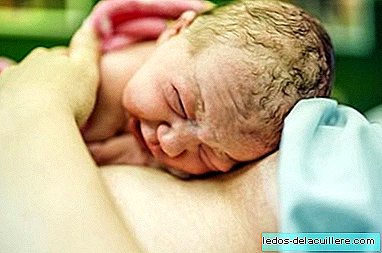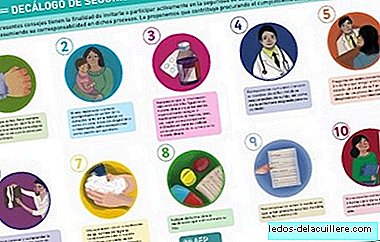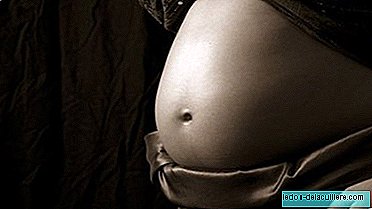
Ectopic or extrauterine pregnancy, is one that occurs outside the uterus. Under normal conditions, the fertilized ovum descends through the fallopian tubes to the uterus or womb, where it is implanted to begin its development, but in an ectopic pregnancy it does so elsewhere, in 98 percent of the cases in the tubes of Fallopian
Although cases of healthy babies born from an ectopic pregnancy have been known, very rarely they are viable this type of pregnancy, being a frequent cause of gestational loss during the first trimester. In addition, if they are not detected, they can pose a serious risk to the mother's health. We will talk in depth about risk factors and symptoms of ectopic pregnancy.
In Spain, just over two percent of total pregnancies are ectopic. It can happen to anyone, although there are certain risk factors that predispose it. Also, being so dangerous for women, it is important to know detect when before the first alarm signals to find a solution: unfortunately, the only one is to end the pregnancy.
Risk factors of ectopic pregnancy
Be over 35 years old: The highest rate of ectopic pregnancies occurs in women between 35 and 44 years.
Have the tubes tied (tubal surgery): It is more likely two or more years after the procedure. Women who have undergone tubal recanalization surgery in order to become pregnant again also have an increased risk of ectopic pregnancy.
Have had pelvic inflammatory disease: An upper reproductive tract infection usually caused by untreated sexually transmitted infections, such as gonorrhea or chlamydia.
To have had a previous ectopic pregnancy: Increases between 10 and 25 percent chance of having a future tubal pregnancy (in the fallopian tube).
Women carrying IUDs (intrauterine device): In the rare cases in which a woman becomes pregnant, the risk of having an ectopic pregnancy is high.
Women with endometriosis
To have congenital defects in the fallopian tubes
Smoking: smokers are twice as likely to suffer an ectopic pregnancy as women who do not smoke. Nicotine could paralyze the cilia of the lining of the fallopian tube, villi responsible for carrying the fertilized egg to the uterus.
Although it has been associated with the use and abuse of the pill the day after, studies seem to have shown that this risk does not exist, since it is exactly the same percentage of risk as the general population.
Symptoms of ectopic pregnancy

Many of the symptoms of ectopic or extrauterine pregnancy usually coincide with the classic symptoms of pregnancy, such as nausea, fatigue, weakness and abdominal pain. Only half of women have signs that warn of an ectopic pregnancy, so early ultrasound is the most effective way to check the location of the embryo.
If you do a pregnancy test could be positive, since the levels of the so-called chorionic gonadotropin hormone (HCG) are raised, but it would be a false positive. If the hormone is at levels higher than 1500 mUI / mL (between the third and fourth week) or 5000 mUI / mL (between the fifth and sixth week) and if the embryo is not visualized, the diagnosis is confirmed.
The most frequent alarm signals In ectopic pregnancy they are:
Very strong pain in the lower abdomen, initially, on one side. Pain may occur when urinating, having a bowel movement, coughing or making sudden movements. If a tube rupture occurs, the pain would be very sharp and constant for a short time and spread throughout the pelvic area.
Can be presented vaginal losses Brown or slight bleeding several days or weeks before the pain (only 40 to 50 percent of women have vaginal bleeding). If the fallopian tube ruptures, apart from the pain there would be severe bleeding.
A high percentage of women with ectopic pregnancy suffer nausea and dizziness, although this symptom is difficult to differentiate from morning sickness.
Some women suffer fainting or weakness. If the tube breaks, rapid and weak pulse and cold and wet skin are also common.
Low back pain, in the lower back.
Some women feel shoulder pain.
Some women feel pressure in the rectum.
Photos | Thinkstock
In Babies and more | Ectopic pregnancy can be overlooked in almost half of the cases, Advances in the prediction of ectopic pregnancies












